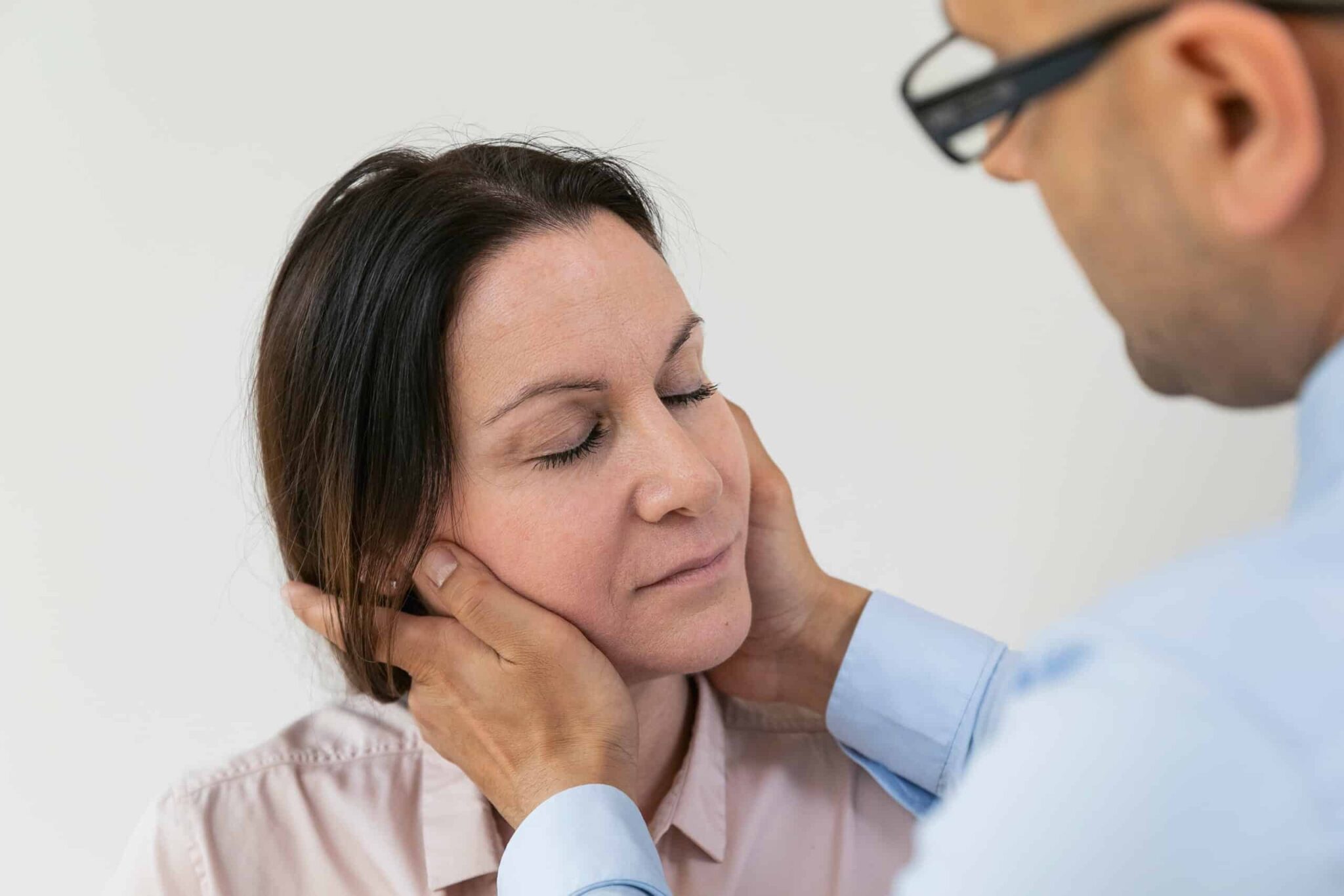What is the definition of menopause?
Menopause is the time before and around the last menstrual period. It is also called the climacteric. Menopause is the transition to the postmenopausal stage, and you are in menopause when you have not had a period for 1 year.
For most women, menopause occurs between the ages of 45 and 55. Therefore, the exact time when menopause begins varies from woman to woman. However, it is determined by heredity, the size of one’s ovarian reserve, smoking and radiation, for example in connection with chemotherapy.
The transition to menopause can include signs and symptoms that many women find bothersome. Some experience no discomfort and menstrual bleeding just stops gradually or suddenly. But many do experience discomfort and if they are severe, they can be treated.
What does it feel like to be in menopause?
Some of the signs and symptoms that bother many women are the following:
- Bleeding disorders in the form of menstrual bleeding becoming more irregular and variable. This can be expressed by longer intervals between bleeding, more frequent bleeding, heavier bleeding. They are unpredictable but end up being less and less frequent as you get closer to menopause.
- Hot flashes and sweating and sensitivity to temperature fluctuations are also common symptoms. Hot flashes are a sudden feeling of warmth in the upper body and head. They can last for several minutes and can be accompanied by restlessness and palpitations. They often occur at night and can lead to poor sleep quality. There are various things that can trigger hot flashes, such as coffee, stress, strong and spicy food, alcohol and warm environments. They can continue into menopause for a few years, but gradually subside. On average, hot flashes last 4 years and 5-10 hot flashes occur in a day.
- Mucous membrane changes where the mucous membranes, especially in the lower abdomen, become thinner and more delicate. This can lead to dryness in the lower abdomen, which can cause problems during sex. In addition, you can get cystitis more easily. The mucous membranes in the rest of the body can also be affected and you can have dry eyes, among other things.
- Bone loss is common with age, beginning in the mid-30s in both sexes. Women lose about 1% per year, and during menopause, women can lose up to 6% per year. With increased bone loss, there is also an increased risk of fractures.
- The risk of cardiovascular disease increases during menopause, where it becomes as high as the risk for men.
- Several women also experience psychological symptoms in connection with menopause. Some develop depression, especially if they have previously had depression or major mood swings during menstruation and pregnancy. Some also experience reduced energy due to nighttime hot flashes and poor sleep. For many, menopause can be a difficult time in life to reach, and the view of menopause also plays a role in how one gets through the period.
What is happening in the body and why?
The ovaries stop producing the two female sex hormones, estrogen and progesterone, during menopause. Estrogen builds and strengthens the mucous membranes in the lower abdomen and counteracts bone loss and prevents atherosclerosis. This results in dryness in the lower abdomen, an increased tendency to cystitis, increased bone loss and a greater risk of cardiovascular disease. Progesterone ensures that menstruation is regular. The lack of this hormone is the cause of bleeding disorders.
What can be done about menopause and the problems you may experience in connection with it?
You can get hormone therapy for mucosal changes and hot flashes. The mucosal changes can be treated locally in the lower abdomen with a cream or a suppository. Hot flashes are treated with estrogen supplements in the form of tablets, skin gel, spray and patch, so that it affects the whole body. Medical treatment is prepared with your own doctor, as there are side effects and an increased risk of other diseases, which should be discussed. The local treatment in the lower abdomen is not dangerous and can be tolerated by everyone.
Otherwise, you can also do something about the problems you may experience during menopause. Here lifestyle advice is recommended:
- Regular physical activity as it affects temperature regulation, hormonal balance, mood and body strength.
- Varied diet. Avoid foods that provoke your hot flashes. Unsaturated fats are good for circulation, joints and brain. Vitamin D and calcium strengthen bones.
For many, sleep is the biggest problem during menopause. This can be remedied by:
- Avoid caffeine, alcohol, food, and cigarettes right before bed
- Be physically active during the day – not too close to bedtime
- Try to get rid of your mind clutter by writing down thoughts and practical tasks before bed.
- Try relaxation or breathing exercises to help calm yourself before bed.
- Avoid light from screens before bed
- Use earplugs against noise
- Use the bed only for sleep and sex
- Only take short naps before 2 p.m.
- Get a regular sleep routine, go to bed and get up at the same time
Other good advice:
- Keep your weight normal, it will lead to fewer hot flashes
- Continue your sexual activity. Use lubricant to relieve discomfort in the form of dryness.
- Wash the intimate area with water only
- Exercise your pelvic floor 2-3 times a day to reduce the risk of incontinence.
Osteopathy and menopause
Menopause is a natural and necessary process that most women go through. Osteopathy cannot promote or influence the hormonal process related to menopause. However, we find that osteopathic treatment can have a positive effect on symptoms such as sweating, back and pelvic pain, poor well-being, etc. that may be associated with menopause.



